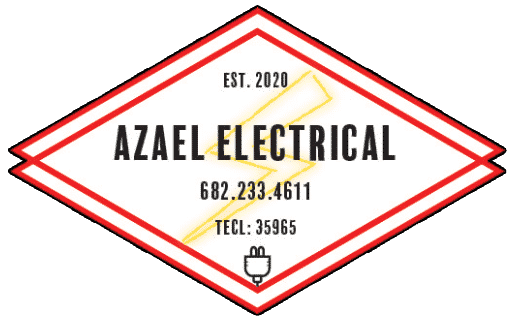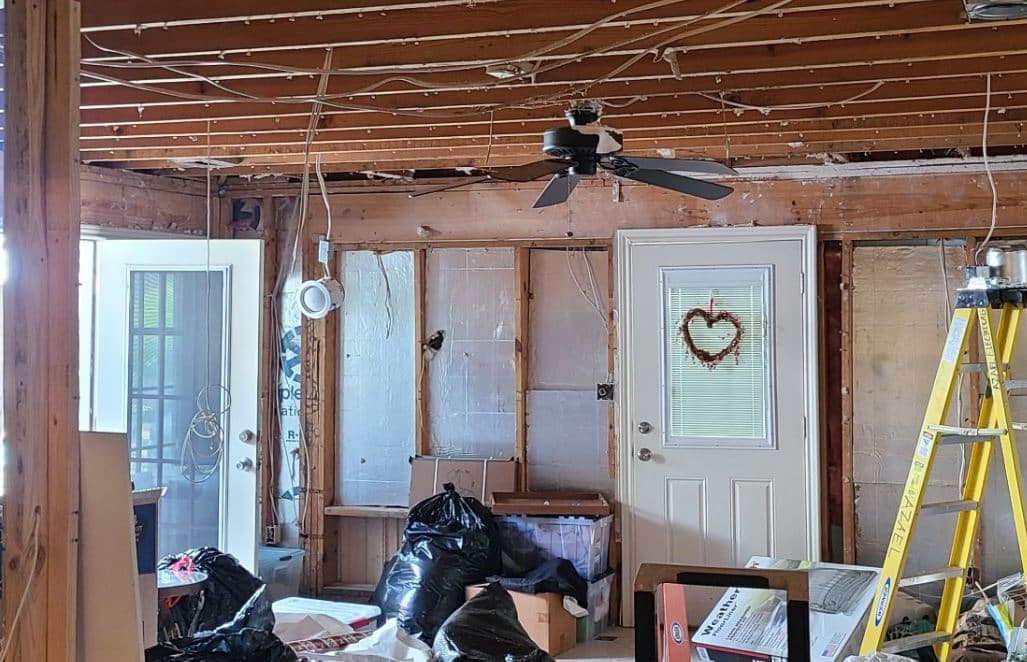Welcome to this comprehensive guide on signs that indicate you need electrical work in your home.
As a homeowner, it is crucial to be aware of potential electrical problems and address them promptly to ensure the safety and efficiency of your electrical system.
By identifying these signs, you can prevent potential hazards, costly repairs, and even safeguard the lives of your loved ones. In this article, we will explore common signs of electrical issues, their causes, and the necessary steps to take to resolve them.
1. Flickering Lights
Why are your lights flickering?
Flickering lights can be attributed to various factors, including loose connections, faulty light bulbs, or even issues with the electrical circuit. In some cases, it could be a sign of a more serious electrical problem that requires immediate attention.
Do flickering lights indicate a serious electrical issue?
While flickering lights may not always indicate a grave concern, it is essential to investigate the cause. In some instances, it could be a symptom of underlying electrical issues such as faulty wiring or overloaded circuits. It is advisable to consult a professional electrician to determine the root cause and address it accordingly.
2. Electrical Shocks
What are the possible causes of electrical shocks in your home?
Electrical shocks can occur due to various reasons, such as faulty wiring, improper grounding, or damaged electrical appliances. Additionally, moisture or water exposure near electrical outlets or switches can increase the risk of electric shocks.
How can you determine if the shocks are a sign of underlying electrical problems?
If you experience electric shocks when touching electrical appliances or switches, it is crucial to assess whether this is an isolated incident or a recurring problem. If you frequently encounter electric shocks, it is advisable to contact a qualified electrician to inspect your electrical system for potential faults and make the necessary repairs.
3. Overloaded Circuits
What are the signs of overloaded circuits?
Some signs that indicate an overloaded circuit include circuit breakers frequently tripping, flickering lights, buzzing sounds, or warm outlets. These signs suggest that the demand on the circuit exceeds its capacity, which can lead to electrical issues and potential hazards.
How can overloaded circuits lead to electrical issues in your home?
When a circuit is overloaded, it can lead to overheating, which increases the risk of electrical fires. Overloaded circuits can also cause damage to electrical appliances and decrease the overall efficiency of your electrical system. It is crucial to address this issue promptly to maintain a safe and reliable electrical infrastructure.
4. Burning Smells
What might be causing the burning smell in your home?
A burning smell in your home may indicate an electrical issue, such as overheating wires or electrical components. This could be caused by loose connections, faulty wiring, or damaged electrical devices.
How can you identify if the burning smell is related to electrical problems?
If you detect a burning smell, it is essential to take immediate action. First, ensure there are no immediate fire hazards present. If the smell persists, turn off the power to the affected area and contact an electrician to inspect and diagnose the source of the odor. Ignoring a burning smell can result in severe electrical damage or even a fire.
5. Hot Outlets or Switches
What could be causing your outlets or switches to become hot?
Hot outlets or switches can be caused by various factors, including loose connections, overloaded circuits, or faulty wiring. When electrical components experience excessive heat, it signifies an underlying problem that should be addressed promptly.
Is it normal for outlets or switches to feel warm to the touch?
No, outlets or switches should not feel warm to the touch under normal circumstances. If you notice any heat emanating from these electrical components, it is essential to have them inspected by a licensed electrician to identify and rectify any potential risks.
6. Tripping Circuit Breakers
Why do circuit breakers trip?
Circuit breakers are designed to trip or shut off when they detect an overload or a short circuit in the electrical system. This protective mechanism prevents overheating and potential electrical hazards.
What are the potential consequences of frequent circuit breaker trips?
Frequent circuit breaker trips indicate an underlying issue in your electrical system. If left unaddressed, this can lead to inconvenient power outages, damage to electrical devices, and even electrical fires. It is crucial to determine the cause of frequent trips and have a professional electrician resolve the problem.
7. Buzzing or Humming Sounds
What causes buzzing or humming sounds in your electrical system?
Buzzing or humming sounds can result from loose connections, faulty wiring, or damaged electrical components. These sounds are often an indication of an electrical issue that requires attention.
Are these sounds always a sign of electrical issues?
While buzzing or humming sounds can sometimes be attributed to harmless factors such as interference from nearby electronics, it is essential to investigate the source of the noise. If the sounds are persistent or accompanied by other signs of electrical problems, it is advisable to consult a professional electrician to assess the situation and address any potential risks.
8. Sparking Outlets
What could be causing outlets to spark?
Outlets may spark due to loose connections, damaged wiring, or a faulty outlet itself. It is crucial to address this issue promptly, as sparking outlets can lead to electrical fires and pose a serious hazard.
How can you determine if sparking outlets are a cause for concern?
Sparking outlets should never be ignored. If you notice sparks coming from an outlet, immediately turn off the power to that area and contact a licensed electrician. Ignoring this issue can result in severe electrical damage or even a fire. It is important to leave the assessment and repairs to a qualified professional to ensure the safety of your home.
9. Dimming or Flickering Appliances
What might be causing your appliances to dim or flicker?
Dimming or flickering appliances can be caused by various factors, including voltage fluctuations, faulty wiring, or an overloaded electrical circuit. These issues can impact the performance and lifespan of your appliances.
Can these issues be fixed without professional electrical work?
Fixing dimming or flickering appliances often requires the expertise of a professional electrician. They can assess the electrical system, identify the root cause, and make the necessary repairs or adjustments to ensure the appliances operate safely and efficiently.
10. High Energy Bills
How can electrical problems contribute to increased energy consumption?
Electrical problems such as faulty wiring, inefficient appliances, or energy leaks can lead to increased energy consumption. When electrical systems are not functioning optimally, they require more energy to operate, resulting in higher utility bills.
What should you do if you notice a sudden increase in your energy bills?
If you experience a sudden and unexplained increase in your energy bills, it is worth investigating the cause. Start by assessing your electrical system for any signs of malfunction, such as flickering lights, hot outlets, or frequently tripping circuit breakers. If you cannot identify the issue, it is advisable to enlist the help of a professional electrician to conduct a thorough inspection and diagnose any potential energy inefficiencies.
11. Outdated Wiring
What are the signs that your home may have outdated wiring?
Signs of outdated wiring include frequently blown fuses, flickering lights, outlets that do not accommodate three-pronged plugs, or a lack of grounded outlets in the home. Additionally, if your home was built several decades ago and has not undergone electrical updates, it is likely that the wiring may be outdated.
Why is it important to address outdated wiring promptly?
Outdated wiring poses significant safety risks as it may not be able to handle the electrical demands of modern appliances and technology. This can lead to electrical malfunctions, increased risk of electrical fires, and potential damage to electrical devices. It is crucial to have a licensed electrician assess the wiring and, if necessary, perform the required updates to ensure the safety and efficiency of your electrical system.
12. Frequently Blown Fuses
What causes fuses to blow frequently?
Frequently blown fuses can result from overloaded circuits, short circuits, or faulty electrical devices. When the current exceeds the fuse’s amperage rating, it causes the fuse to blow, interrupting the electrical flow and protecting the circuit from potential damage.
How can you determine if the issue is with the fuse or the electrical system?
If you experience frequent blown fuses, it is important to identify whether the issue lies with the fuse itself or if it indicates an underlying electrical problem. Start by replacing the blown fuse with one of the correct amperage rating. If the new fuse blows immediately or shortly after replacement, there may be an electrical issue that requires professional attention. A licensed electrician can assess the situation, identify the cause, and make the necessary repairs to ensure the safe operation of your electrical system.
Conclusion
Recognizing the signs of electrical problems in your home is crucial for maintaining a safe and efficient electrical system. By being aware of these signs and taking prompt action, you can prevent potential hazards, minimize the risk of electrical fires, and protect the well-being of your household.
If you notice any of the signs discussed in this article, it is strongly recommended to contact a licensed electrician who can assess your electrical system, diagnose any issues, and perform the necessary electrical work to ensure the safety and functionality of your home.
Remember, electrical issues should never be ignored, as they can have serious consequences.
Stay vigilant, and prioritize the maintenance of your electrical system for a secure and reliable living environment.

